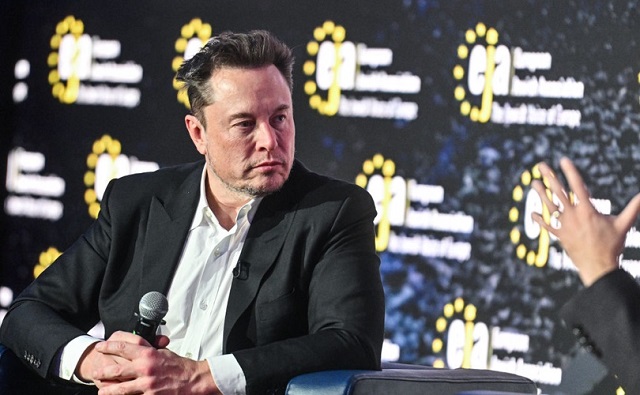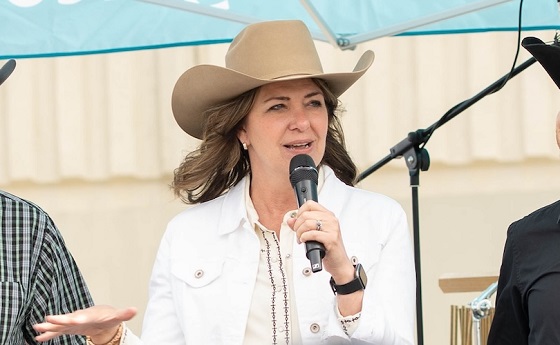Education
Elon Musk’s controversial Neuralink completes first-ever chip implantation in human brain

From LifeSiteNews
The billionaire mogul said the subject ‘is recovering well.’
Billionaire mogul Elon Musk’s controversial company Neuralink successfully implanted a computer chip into the brain of a human subject for the first time on Sunday. The technology and its potential impact on humanity has sparked serious ethical concerns.
Musk announced the news in a post on his social media platform X (formerly Twitter) on Monday.
“The first human received an implant from [Neuralink] yesterday and is recovering well,” he said.
The first human received an implant from @Neuralink yesterday and is recovering well.
Initial results show promising neuron spike detection.
— Elon Musk (@elonmusk) January 29, 2024
Musk said the company’s first product, named “Telepathy,” “[e]nables control of your phone or computer, and through them almost any device, just by thinking.”
“Initial users will be those who have lost the use of their limbs,” he said. “Imagine if Stephen Hawking could communicate faster than a speed typist or auctioneer. That is the goal.”
The news comes after the U.S. Food and Drug Administration (FDA) approved human trials for the novel technology under an “investigational device exemption” in May 2023. In September, the company announced it had “received approval from the reviewing independent institutional review board and our first hospital site to begin recruitment for our first-in-human clinical trial.”
Through the trials, researchers are attempting to determine whether Neuralink’s “BCI [brain computer interface]” functions to help “people with paralysis to control external devices with their thoughts.”
But restoring motor function to people with mobility impairments isn’t the only or even the primary goal of the brain chips, a reality Musk hinted at in his Monday social media posts.
The tech entrepreneur, who founded Neuralink in 2016, has been open about his belief in the technology’s potential to head off a dystopian, science fiction-esque outcome in which Artificial Intelligence (AI) becomes “much smarter than humans” and essentially takes over society.
In a speech at the California Academy of Sciences in San Francisco in 2019, Musk explicitly stated that the “point” of Neuralink is “to secure humanity’s future as a civilization relative to AI.”
“After solving a bunch of brain-related diseases, there is the mitigation of the existential threat of AI,” he said, arguing the technology will “be really important at civilization level scale.” According to Musk, only by “merging” with AI will humans develop the capacity to stay ahead of and protect themselves from it.
Musk has suggested that the chips will ultimately enable users to do things like “save and replay memories,” functioning as a “backup drive for your non-physical being, your digital soul.”
“The future is going to be weird,” he joked.
RELATED: World Economic Forum speaker touts technology that allows your boss to monitor your brain activity
Critics of the technology have raised strong and persistent concerns about the general loss of privacy and autonomy occasioned by the widespread use of the technology, as well as the potential for it to be weaponized against citizens by tyrannical governments.
Researchers assessing the impact of neurotechnology have identified “four new rights that may become of great relevance in the coming decades” amid the rise of implantable devices: “the right to cognitive liberty, the right to mental privacy, the right to mental integrity, and the right to psychological continuity.”
The technology presents serious philosophical and religious dilemmas as well.
Writing on the issue for The Catholic Stand in 2019, Ph.D. candidate and pro-life writer Christopher Reilly posed several major questions related to the technology’s impact on human beings, including: “Will use of the technology further erode respect for human dignity? … Will our spiritual identities become confused or damaged?” and “Does the technology enhance or detract from living in holiness?”
“The only thing obvious about all of this is that we need the guidance of the Church and tech-savvy theologians and philosophers,” Reilly wrote. “[A]nd we need that guidance very soon.”
Alberta
Schools should go back to basics to mitigate effects of AI

From the Fraser Institute
Odds are, you can’t tell whether this sentence was written by AI. Schools across Canada face the same problem. And happily, some are finding simple solutions.
Manitoba’s Division Scolaire Franco-Manitobaine recently issued new guidelines for teachers, to only assign optional homework and reading in grades Kindergarten to six, and limit homework in grades seven to 12. The reason? The proliferation of generative artificial intelligence (AI) chatbots such as ChatGPT make it very difficult for teachers, juggling a heavy workload, to discern genuine student work from AI-generated text. In fact, according to Division superintendent Alain Laberge, “Most of the [after-school assignment] submissions, we find, are coming from AI, to be quite honest.”
This problem isn’t limited to Manitoba, of course.
Two provincial doors down, in Alberta, new data analysis revealed that high school report card grades are rising while scores on provincewide assessments are not—particularly since 2022, the year ChatGPT was released. Report cards account for take-home work, while standardized tests are written in person, in the presence of teaching staff.
Specifically, from 2016 to 2019, the average standardized test score in Alberta across a range of subjects was 64 while the report card grade was 73.3—or 9.3 percentage points higher). From 2022 and 2024, the gap increased to 12.5 percentage points. (Data for 2020 and 2021 are unavailable due to COVID school closures.)
In lieu of take-home work, the Division Scolaire Franco-Manitobaine recommends nightly reading for students, which is a great idea. Having students read nightly doesn’t cost schools a dime but it’s strongly associated with improving academic outcomes.
According to a Programme for International Student Assessment (PISA) analysis of 174,000 student scores across 32 countries, the connection between daily reading and literacy was “moderately strong and meaningful,” and reading engagement affects reading achievement more than the socioeconomic status, gender or family structure of students.
All of this points to an undeniable shift in education—that is, teachers are losing a once-valuable tool (homework) and shifting more work back into the classroom. And while new technologies will continue to change the education landscape in heretofore unknown ways, one time-tested winning strategy is to go back to basics.
And some of “the basics” have slipped rapidly away. Some college students in elite universities arrive on campus never having read an entire book. Many university professors bemoan the newfound inability of students to write essays or deconstruct basic story components. Canada’s average PISA scores—a test of 15-year-olds in math, reading and science—have plummeted. In math, student test scores have dropped 35 points—the PISA equivalent of nearly two years of lost learning—in the last two decades. In reading, students have fallen about one year behind while science scores dropped moderately.
The decline in Canadian student achievement predates the widespread access of generative AI, but AI complicates the problem. Again, the solution needn’t be costly or complicated. There’s a reason why many tech CEOs famously send their children to screen-free schools. If technology is too tempting, in or outside of class, students should write with a pencil and paper. If ChatGPT is too hard to detect (and we know it is, because even AI often can’t accurately detect AI), in-class essays and assignments make sense.
And crucially, standardized tests provide the most reliable equitable measure of student progress, and if properly monitored, they’re AI-proof. Yet standardized testing is on the wane in Canada, thanks to long-standing attacks from teacher unions and other opponents, and despite broad support from parents. Now more than ever, parents and educators require reliable data to access the ability of students. Standardized testing varies widely among the provinces, but parents in every province should demand a strong standardized testing regime.
AI may be here to stay and it may play a large role in the future of education. But if schools deprive students of the ability to read books, structure clear sentences, correspond organically with other humans and complete their own work, they will do students no favours. The best way to ensure kids are “future ready”—to borrow a phrase oft-used to justify seesawing educational tech trends—is to school them in the basics.
Business
Why Does Canada “Lead” the World in Funding Racist Indoctrination?
-

 Crime2 days ago
Crime2 days agoBondi Beach Survivor Says Cops Prevented Her From Fighting Back Against Terrorists
-

 Automotive2 days ago
Automotive2 days agoFord’s EV Fiasco Fallout Hits Hard
-

 Frontier Centre for Public Policy1 day ago
Frontier Centre for Public Policy1 day agoCanada Lets Child-Porn Offenders Off Easy While Targeting Bible Believers
-

 Alberta2 days ago
Alberta2 days agoDanielle Smith slams Skate Canada for stopping events in Alberta over ban on men in women’s sports
-

 International2 days ago
International2 days agoTOTAL AND COMPLETE BLOCKADE: Trump cuts off Venezuela’s oil lifeline
-

 Agriculture1 day ago
Agriculture1 day agoWhy is Canada paying for dairy ‘losses’ during a boom?
-

 Business1 day ago
Business1 day agoCanada Hits the Brakes on Population
-

 International2 days ago
International2 days agoHouse Rejects Bipartisan Attempt To Block Trump From Using Military Force Against Venezuela












